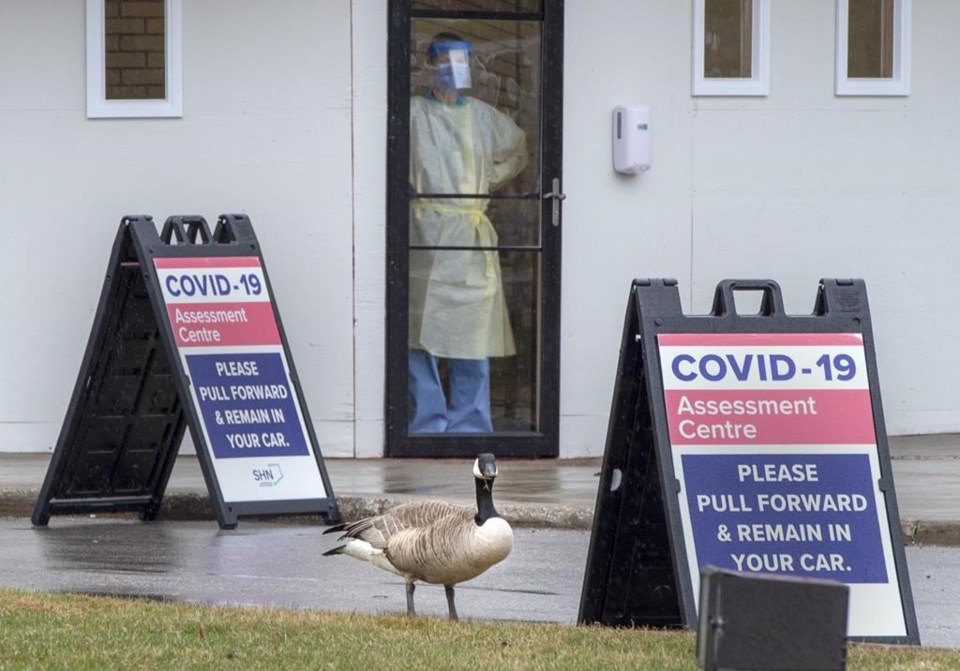TORONTO — A new report finds immigrants, refugees and other newcomers accounted for nearly 44 per cent of Ontario's COVID-19 cases in the first half of the year.
That's despite the fact overall testing rates were lower for those groups, and that they comprised just one-quarter of the population.
The non-profit research institute ICES examined provincial health administrative data collected between Jan. 15 and June 13, 2020.
Immigrants and refugees who worked in health-care, especially women, accounted for a disproportionate number of cases.
The report's lead author, Dr. Astrid Guttmann, notes many immigrants and refugees face systemic inequities including lower pay and precarious employment that may not offer sick leave.
She adds many also face language barriers and are more likely to live in crowded and multigenerational households, making it more difficult to isolate when cases occur.
"We know that there are higher rates of COVID in lower-income neighbourhoods but actually when we looked at it, we showed that this was much more of an issue for immigrants and refugees," says Guttmann.
"So when you look at how rates of cases goes up by neighbourhood income, there's a much, much steeper gradient for immigrants and refugees than for (those) Canadian-born."
Guttmann says the findings underscore the need to make COVID-19 tests easier to obtain for newcomers, suggesting mobile testing units that can target at-risk communities.
She also suggests financial help for people who can't safely quarantine in their homes or are homeless, and income supplements for those who don't get sick leave from their employer.
The study, released Wednesday, excludes long-term care residents and those not eligible for provincial health coverage, such as asylum seekers awaiting refugee hearings.
Provincial COVID-19 test results were linked to data from Immigration, Refugees and Citizenship Canada involving people who landed in Ontario from 1985 to 2017.
The data also drills down into the large numbers of female immigrants and refugees who work in health-care — a job category that itself carries greater risk of COVID-19 exposure.
"When we look at adult females who are positive for COVID, just over a third of them are health-care workers but almost half of them are immigrants and refugees and they come from a few distinct countries — the Philippines, Jamaica, Nigeria, India," says Guttmann.
Of all women from Nigeria who tested positive, 76 per cent were health-care workers.
Meanwhile, 64 per cent of female Jamaicans who tested positive were health-care workers, 53 per cent of all Filipinas who tested positive were health-care workers, and 38 per cent of female Indians were health-care workers.
Guttmann adds that it's not clear whether immigrant health-care workers are more likely than non-immigrant health-care workers to contract COVID-19.
While the findings only relate to Ontario, she suspects "the dynamics are probably fairly similar" nationally, although the pandemic has not hit some parts of Canada as hard as others.
"This really relates quite heavily to immigrants and some of the work that they do and some of the risks that are associated with those occupations."
Of those who were tested, refugees had the highest per cent positivity at 10.4 per cent versus 7.6 per cent in other immigrants, while the rate was 2.9 per cent among Canadian-born/long-term residents.
Immigrants and refugees from Central, Western and East Africa, South America, the Caribbean, South East Asia and South Asia had the highest rates of positivity when examined by world region.
ICES is a non-profit research institute based in Toronto that studies population-based health information for insight into a broad range of health-care issues.
This article by The Canadian Press was first published Sept. 9, 2020.
Cassandra Szklarski, The Canadian Press



